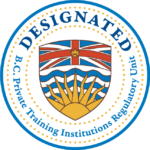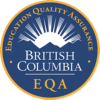STUDYING IN VANCOUVER
Vancouver, located on Canada’s stunning west coast, is a vibrant hub for media and storytelling. Known as “Hollywood North,” it hosts North America’s third-largest film and TV production industry and world-class festivals like VIFF and DOXA. The city also excels in 3D, gaming, and visual effects, home to top studios like ILM, Sony Imageworks, and Scanline. Surrounded by ocean and mountains, Vancouver blends natural beauty with a dynamic arts scene and active lifestyle.
HOUSING
The Vancouver rental housing market can be daunting, but there are resources available for both domestic and international students. If you do not already have a place to stay, we have partnered with two trusted housing providers to help make your transition smoother.
Van Sweet Home
Van Sweet Home offers affordable and hassle-free housing solutions tailored for students traveling from out of town. Their services include furnished accommodations, flexible lease terms, and dedicated support to help you settle in quickly and comfortably.
VLE Limited
VLE Limited specializes in student housing and provides a range of rental options across Vancouver. Whether you need short-term or long-term accommodations, VLE Limited works to match you with a place that fits your needs and budget, minimizing the stress of finding housing on your own.
Other Housing Resources
Other Accommodation Resources
Note, InFocus is not affiliated with the companies listed outside our partnered list, and does not inspect or vet any of the accommodations advertised therein. All students seeking accommodations should know their tenancy rights and exercise due caution when making independent housing arrangements.
COST OF LIVING
The cost of living for college students in British Columbia can vary significantly depending on factors like location, living situation, and lifestyle choices. Generally, students in Vancouver can expect to spend between $2,350 and $5,000 per month, including tuition, housing, groceries, transportation, and other expenses.
Example Breakdown of Costs:
Vancouver housing can be pricey, but students have options. Shared apartments or student housing start around $700–$1,200/month, depending on location and number of roommates. Studio or one-bedroom rentals range from $1,500–$2,500/month. Utilities (heat, electricity, water) can add $50–$150/month, often included in shared housing setups.
BC TENANCY RIGHTS
As you settle into your new home, it’s important to understand your rights and responsibilities as a tenant. Here are a few tips to help you navigate tenancy laws in BC.
For more detailed information, visit the BC Government’s Residential Tenancies page
Understanding Your Tenancy Agreement
Written Agreement: Your landlord must provide a written tenancy agreement. Even if one isn’t provided, the standard terms still apply once you pay a security deposit.
Review Carefully: Before signing, read the agreement thoroughly. Ask for clarification of any points you don’t understand.
Keep a Copy: Both you and your landlord should sign and date the agreement. The landlord must give you a copy as well. Keep it safe, as it serves as proof of your tenancy.
Security Deposit/Damage Deposit
Amount: The security deposit cannot exceed half of one month’s rent.
Return: At the end of your tenancy, the landlord must return the deposit within 15 days, provided there are no damages beyond normal wear and tear
Repairs and Maintenance
Landlords must maintain the rental unit in a state of good repair and ensure it complies with health and safety standards. You should keep the unit clean and report any needed repairs promptly.
Notify your landlord in writing if repairs are needed. If they don’t address the issue within a reasonable time, you can apply for dispute resolution through the Residential Tenancy Branch.
Landlord Access to Your Unit
Notice Required: Your landlord must give you at least 24 hours written notice before entering your rental unit, except in emergencies.
Emergency Situations: In emergencies, such as a fire or flood, the landlord can enter without notice.
Where to Get Help
Residential Tenancy Branch: Provides information and dispute resolution services.
Tenant Resource & Advisory Centre: Offers legal education and information about residential tenancy law.
Local Settlement Agencies: May assist with tenancy-related questions or concerns.
BC EMPLOYMENT RIGHTS
To protect yourself in the workplace, it’s important to familiarize yourself with British Columbia’s employment laws so you understand your rights. Always keep records such as your employment contract, pay stubs, and any correspondence with your employer, as these documents can be essential if issues arise. If you have concerns, don’t hesitate to speak up, discuss them with your employer or seek advice from trusted resources to ensure your rights are respected.
For more detailed information, visit the BC Government’s Employment standards page
Before You Start Working
Social Insurance Number (SIN): To work in Canada, you need a SIN. Apply online or at a Service Canada Centre.
Work Permits: Ensure your study or work permit allows you to work.
Employment Standards: Most workers in BC are protected by the Employment Standards Act, but some exceptions apply.
Wages and Pay
Minimum Wage: As of June 1, 2025, the minimum wage in BC is $17.85 per hour for most employment types.
Paydays: Employers must pay you at least twice a month, with no more than 16 days between paydays.
Pay Statements: You should receive a written pay statement detailing your hours worked, wage rate, and deductions.
Hours of Work and Breaks
Meal Breaks: If you work more than 5 hours in a row, you’re entitled to a 30-minute unpaid meal break.
Minimum Daily Pay: If you’re scheduled for more than 8 hours and report to work, you’re entitled to at least 4 hours of pay, even if no work is available.
Overtime: If you work more than 8 hours in a day or 40 hours in a week, you’re entitled to overtime pay
- 1.5 times your regular wage for the first 12 hours
- 2 times your regular wage for any hours over 12
Time Off and Leaves
Vacation: After one year of employment, you’re entitled to 2 weeks of paid vacation.
Sick Leave: You’re entitled to 5 days of paid sick leave and 3 days of unpaid sick leave annually.
Parental Leave: Pregnant employees are entitled to up to 17 weeks of unpaid leave.
Safe Working Environment
Safe Conditions: Your employer must make sure your workplace is safe and follows health and safety laws.
Training: You must be trained to do your job safely, including how to use equipment and what to do in emergencies.
Protective Gear: If your job requires safety equipment (like gloves or helmets), your employer must provide it and train you on how to use it.
Refuse Unsafe Work: If you believe something at work is dangerous, you have the right to refuse the task until it’s safe. Your employer must investigate and fix the issue before asking you to do the task again.
Ending Your Employment
Notice: If you’re dismissed after 3 consecutive months of employment, you’re entitled to written notice or compensation.
Filing a Complaint: If you believe your rights have been violated, you can file a complaint with the Employment Standards Branch within 6 months of the incident.



